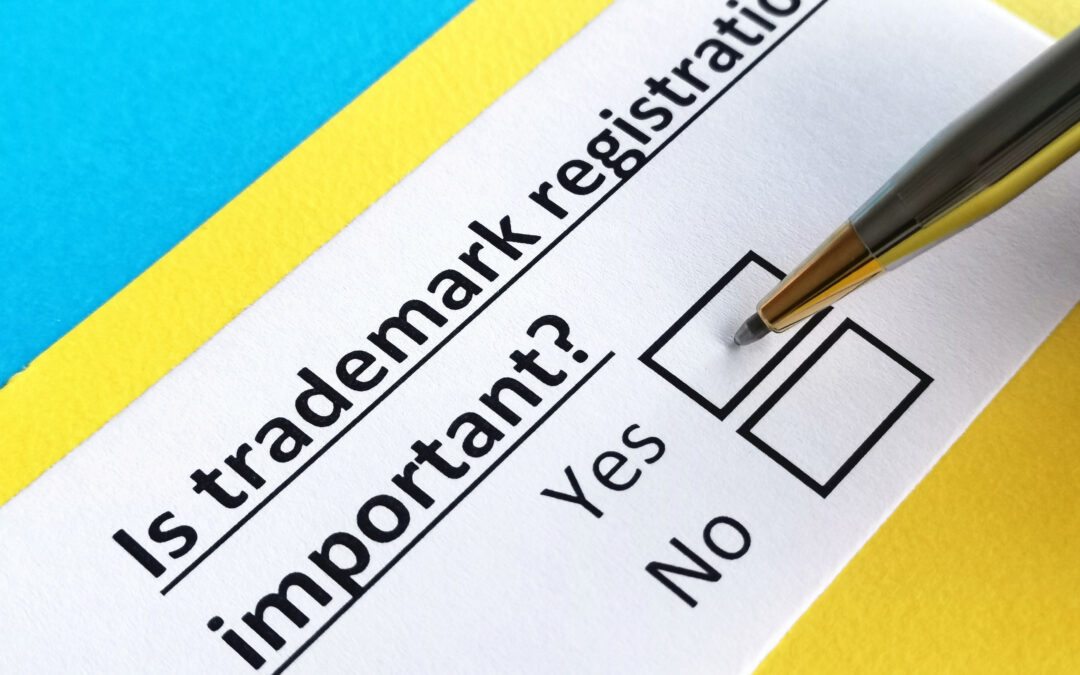Benefits of Trademark Registration.
There are many benefits of trademark registration. The Lanham Act, the law governing trademarks in the United States, does not require that a trademark be registered. Therefore, as the owner of a trademark, you never need to register your trademark. Registering a trademark and maintaining it can be costly. If you desire, you can bypass that process. That said, there are a number of benefits to registering your trademark.
Depending upon the country where you reside, the trademark rules will vary. For example, the United States is a first-to-use nation rather than a first-to-register. That means, the first person to use a mark is considered the valid owner. They have priority, common law rights in commerce. The problem is, if you choose not to register your trademark and someone else registers the same mark, while you may common law rights, you will need to prove it. That can be costly, and there is always the chance you will lose in court.
For that reason, as soon as you are reasonably sure you will use the trademark, you might consider filing a trademark application with the USPTO.
This blog post will focus on why you might want to secure your trademark with a registration. In fact, while there are many advantages to registration, the greatest benefit is the presumption that you are the owner.
Benefits of Trademark Registration.
Below you will find a few of the many benefits a trademark registrant is entitled to once they receive a registration and maintain an active trademark.
- Legal presumption of ownership – As noted above, someone who has used a similar trademark longer than the registrant may have priority, but they will need to prove that. As the owner of a valid trademark registration, they will be presumed to be the owner.
- Presumption of priority – Having a valid trademark registration will also be a presumption that the registrant was the first to use trademark.
- Nationwide protection – With a valid federal trademark registration, the registrant has protection throughout the United States and its territories.
- Could extend protection to related goods, which might not be protected – Could possibly protect goods and service that are not included in the registration.
- Constructive Notice to 3rd parties – A registration notifies everyone that the owner has a federally registered trademark with the USPTO. In federal court, your registration certificate is proof of ownership.
- Right to file with US Customs – May record registration with U.S. Customs and Border Protection.
- Trademark will show up in the USPTO search database called, Trademark Electronic Search System (TESS) – If the trademark is active, anyone choosing to do a federal search in TESS will find the registration.
- Right to use trademark registration ® designation – With an active trademark registration, the registrant has the right to use the “R” in the circle ®.
- May bring a trademark lawsuit in federal court – With a valid federal trademark, the legal owner has the right to sue in federal court.
Summary.
Once again, while a trademark registration is not required, it is strongly encouraged. REGISTER! Register! Register!

Francine D. Ward
Attorney-At-Law, Author, Speaker
Follow Francine:
Don’t miss Francine’s Latest Blogs:
- Sweepstakes ScamsSweepstakes Scams. The Federal Trade Commission (FTC) has settled with several operators of a sweepstakes scam. The scam bilked consumers out of millions of dollars. Included in the settlement agreement,… Read more: Sweepstakes Scams
- Incapacity PlanningIncapacity Planning. Incapacity is an unexpected wrinkle in your estate plan. I am a planner. I make plans, I like making plans, and sometimes my plans go awry. Despite any… Read more: Incapacity Planning
- Publishing contractsPublishing contracts The publishing contract is an agreement that defines the relationship between an author and her publisher. Publishing contracts typically contain elements that speak to territory, rights, ownership, financial… Read more: Publishing contracts
- What is a Habit?As we enter springtime, you may feel far away from your New Year’s resolution. That may be because of the success rate of NYE resolutions. In fact, January 17 is… Read more: What is a Habit?
- Common Contract MistakeCommon Contract Mistake #1. Not Having Written Agreements with EVERYONE You Do Business With. Common contract mistake. Without question, the most common contract mistake is not having the terms of… Read more: Common Contract Mistake











